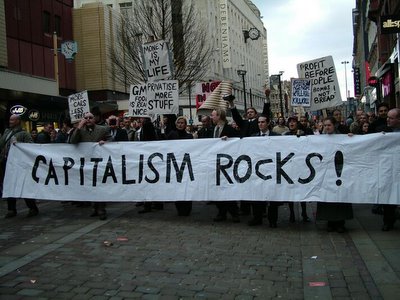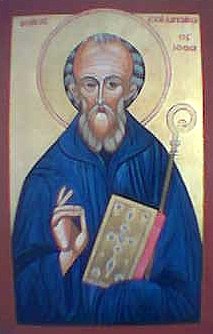
The New York TimesDecember 15, 2005
The Holy Capitalists
By DAVID BROOKS
What explains success? What forces drive some nations and individuals to move forward and grow rich while others stagnate? These happen to be the most important questions in the social sciences today.
In the scholarly arena, you see an array of academic gladiators wielding big books and offering theories.
Over here are the material determinists. Jared Diamond, with his million-selling "Guns, Germs, and Steel," says the West grew rich not because of any innate superiority, but because Europeans happened to have the right kinds of plants. Felipe Fernández-Armesto, with his tome, "Civilizations," argues that success is determined by climate and geography.
Over there are the cultural determinists. Thomas Sowell argues that ethnic groups develop their own skills and values and thrive or suffer as they compete, conquer and migrate. In his great opus, "The Wealth and Poverty of Nations," David Landes shows how cultural mores shaped European empires and the Industrial Revolution.
Now another academic heavyweight has entered the arena. In his new book, "The Victory of Reason," the Baylor sociologist Rodney Stark argues that the West grew rich because it invented capitalism. That's not new. What's unusual is his description of how capitalism developed.
The conventional view, embraced by most of his fellow cultural determinists, is that during the Renaissance and Reformation, Europeans shook off the authority of the Catholic Church. When a secular world was created alongside the sacred one, when intellectual freedom replaced obedience to authority, capitalism and scientific advances were the result.
That theory, Stark says, doesn't fit the facts. In reality, capitalism developed in the Middle Ages, and the important innovations were made by people in the belly of the faith. Religion didn't stifle economic and scientific ideas - it nurtured them.
Stark is building upon the recent research that has reversed earlier prejudices about the so-called Dark Ages. As late as 1983, the esteemed historian Daniel Boorstin could write a chapter on the Middle Ages entitled "The Prison of Christian Dogma."
But the more we learn, the more we realize that most of the progress we link to the Renaissance or later years actually happened during the Middle Ages. Roughly a hundred years before Copernicus, Jean Buridan (circa 1300-1358) wrote that the Earth is an orb rotating on an axis. Buridan, a rector of the University of Paris, was succeeded by Nicole d'Oresme (1323-1382), who explained why the rotation of the Earth doesn't produce wind.
Other medieval Scholastics made the same sort of discoveries in economics and technology. Five hundred years before Adam Smith, St. Albertus Magnus explained the price mechanism as what "goods are worth according to the estimate of the market at the time of sale."
Catholic monasteries emerged as capitalist enterprises, serving not only as manufacturing and trading centers, but also as investment houses. And engineers invented or commercialized a vast array of technologies: the compass, the clock, the round-bottom boat, wagons with brakes and front axles, water wheels, eyeglasses, and so on.
These innovations and discoveries, Stark argues, were not made by the newly secular, but by people who had a distinctly Christian sense of the sacred. Catholic theology had taught them that God had created the universe according to universal laws that reason could discover. It taught that knowledge and history moves forward progressively, so people should look to the future, not the past.
The church recognized the dignity of free labor at a time when most other cultures did not. It valued private property and emphasized the essential equality of human beings despite their unequal incomes and stations.
This history is important today. (And not only because Albertus Magnus knew more about reconciling faith and reason 700 years ago than the bogus culture warriors do now.) It's important because whether we are dealing with poverty around the world or at home, it is not enough to simply liberate people and assume they will automatically pursue economic prosperity. People need to be instilled with certain beliefs, like the belief that the future can be better than the present and that individuals have the power to shape their own destiny.
Ideas and culture drive civilizations. The Catholic Church nurtured one of the most impressive economic takeoffs in human history. Today, as Catholicism spreads in Africa and China, it's important to understand the beliefs that encourage people to work hard and grow rich.


0 Comments:
Post a Comment
<< Home